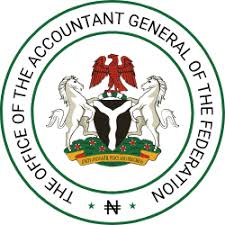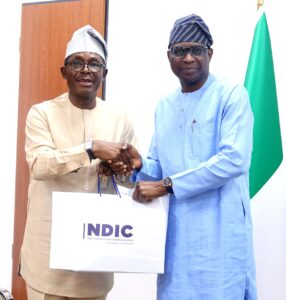The Nigerian Economic Summit Group NESG has called for prudent consideration of the cybersecurity levy’s timing and implementation modalities.
The Group made its position known in a statement issued Thursday 9th May, 2024.
While acknowledging the imperative of enhancing cybersecurity resilience, the NESG noted that by fostering dialogue, targeted application, and comprehensive cybersecurity strategies, Nigeria can navigate the evolving cyber threat landscape while safeguarding economic stability and promoting inclusive growth.
The Central Bank of Nigeria has issued a circular dated May 6, 2024 directing banks to begin charging 0.5 percent (equivalent to 0.005) cybersecurity levy on all electronic transactions value as specified in the Cybercrime Act, section 44(2)(a) effective May 20, 2024. The levy was introduced to curtail heightened cyber threats and boost cybersecurity infrastructure to protect Nigerians against cyber threats.
The CBN circular titled “Cybercrimes Act 2024 – Implementation guidance on the collection and remittance of the national cybersecurity levy,” detailed the consequences of non-compliance, which include a fine of not less than 2 percent of the defaulting business’s annual turnover upon conviction. This stern measure underscores the CBN’s commitment to enforcing the cybersecurity levy, which could significantly bolster government revenue and enhance effective corporate tax, according to the NESG among other tax concerns. Looking at the macroeconomic impact of taxes on household welfare and firm efficiency, the Group observed that levies could strain aggregate demand and limit growth. Since increases in government revenue do not compensate for decreases in household income, especially in the face of increased product prices and income falls, the Gross Domestic Product (GDP) could decline during the immediate policy implementation period.
NESG also observed that an increase in tax could stimulate an upward trend in other prices in the economy, further elevating inflationary pressure as businesses immediately factor such a levy as an additional cost into the price of goods and services which could aggravate social restiveness among the populace. Furthermore, amidst limited buffer for health, education and food security, the policy will exert adverse impact on household whose disposable income has been squeezed by persist inflationary pressure.
“Though levies are efficient revenue-generating instruments for the government, they negatively impact the national economy’s efficiency if their intent is solely revenue-generating without correspondent increased spending or household transfer. All households experience adverse factors in employment and, hence, income diversity. Introducing a new levy may be slightly detrimental to household welfare and increase the disparity between the rural and the urban divide. Increased capital spending and household transfer from the government are effective policy strategies to cushion such adverse effects on economic actors”.
The NESG therefore posits that amidst the cost of living crisis exacerbated by rising inflation, the cybersecurity levy is mistimed, considering CBN’s concern about the high rate of financial exclusion and increased currency in circulation. “The NESG posits that the levy should be targeted at high-net-worth individuals and a specific amount transferred electronically to allay the fears of the populace, who are still battling skyrocketing food and non-food prices. However, if this policy remains, several Nigerians will boycott electronic funds transfers, which does not even bode well for the government due to revenue loss from electronic transfer levy”.
The NESG, however, feels this is a critical time to implement such a policy. The impacts of the fuel subsidy removal, exchange rate reform, and, most recently, the removal of electricity subsidies still permeate the operating costs of businesses and citizens’ welfare. The government must be cautious of the numerous strenuous policies that stiffen the purchasing power and welfare of corporations and individuals. Therefore, the government needs to properly sequence reforms for efficient socioeconomic outcomes, especially those that strain the people.
This policy the statement adds is coming when the Presidential Committee on Fiscal Policy and Tax Reforms is yet to finalise its mandate; the CBN needs to be proactive in monitoring banks’ implementation to curb citizen exploitation; and higher revenue should be achieved without imposing severe burden on poor and vulnerable Nigerians.
It added that the cybersecurity levy needs to be reconsidered, considering the CBN’s concern about the high rate of financial exclusion and increased currency in circulation. “At the NESG, we are concerned that implementing this policy at this critical time will decelerate the pace of achieving the 95 percent financial inclusion target of 2025. The mere news of charges on bank transactions will demotivate many Nigerians from accessing financial services, potentially propelling a surge in the demand for cash”.
“The cybersecurity levy adds to the list of levies and taxes collected by financial institutions on behalf of the government, including stamp duty, electronic transfer levy, and VAT. This embodiment of taxes increases the transaction costs of using a bank and could disrupt the financial intermediation role of banks. Furthermore, given the current strains that citizen face, perceived unfairness, lack of transparency and accountability would heighten distrust in the financial system. The NESG, therefore, suggests the need to reduce banks’ transaction costs, signal clarity to improve trust in the financial system and to entice people to become financially included. For instance, the high transfer costs charged by the official channel (banks) have prompted many Nigerian migrants to route remittances via informal channels”.
The cybercrimes Act has come under heavy criticisms from the organized labour unions, private sector, and citizens over the timing, multiplicity of taxes and levies as well as weakening purchasing power.
Good production costs money and you can support what we do. Please find our details below👇🏾👇🏾👇🏾 Account name: MARKET ONLINE MEDIA Bank: UBA Acc No: 1026401930.






























